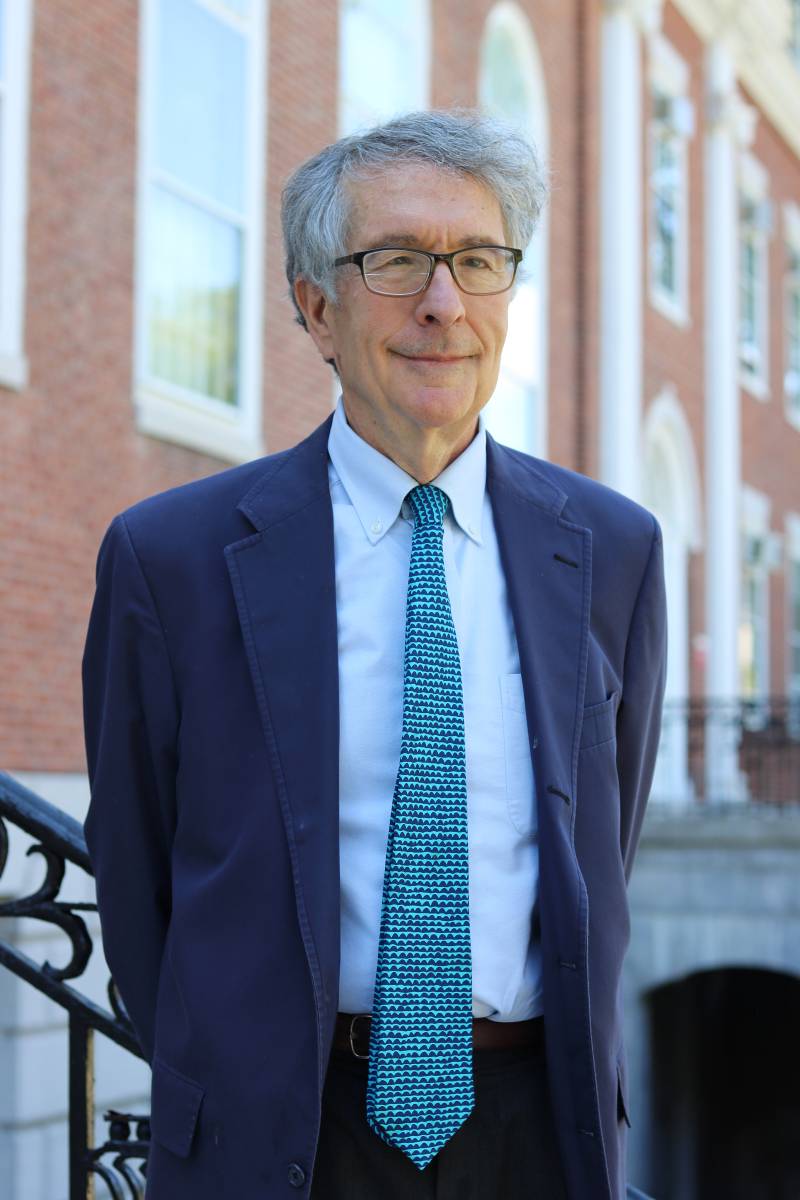Excerpted from “The Real World of College: What Higher Education Is and What It Can Be” by Howard Gardner and Wendy Fischman. Reprinted with permission from The MIT Press. Copyright 2022.
Along with our research team, we spent five years visiting ten disparate campuses, carrying out over two thousand intensive, semi-structured interviews. On each campus we interviewed approximately fifty incoming students and fifty graduating students, and smaller numbers of faculty, senior administrators, trustees, young alums, parents, and job recruiters. … Across all participants, nearly half (44%) rank mental health as the most important problem on campus — one of the few agreements among all participants. Put another way, each constituency group in our study — first-year students, graduating students, faculty, administrators, parents, trustees, young alums — ranks mental health as the biggest problem on the college campus. This alignment — among students at different stages, faculty and administrators who are on campus, as well as trustees, young alums, and parents who are off campus — is notable; indeed, it does not obtain with respect to any of the more than three dozen other questions in our interview protocol.
Academic Rigor: The Most Commonly Cited Cause
 Across all students in our study, the most common explanation (52% of all student-reported causes) about why mental health is the most important problem on campus is academic rigor — the "pressure" of academics. Indeed, we also find that students describe this pressure as what "keeps them up at night." But what exactly is the pressure? Is it about learning difficult content? Or preparing for exams or writing papers? Or building a favorable transcript to get a job or get into graduate school? Or (reminiscent of response options on school admissions exams) "all of the above"?
Across all students in our study, the most common explanation (52% of all student-reported causes) about why mental health is the most important problem on campus is academic rigor — the "pressure" of academics. Indeed, we also find that students describe this pressure as what "keeps them up at night." But what exactly is the pressure? Is it about learning difficult content? Or preparing for exams or writing papers? Or building a favorable transcript to get a job or get into graduate school? Or (reminiscent of response options on school admissions exams) "all of the above"?
Perhaps not surprisingly at this moment in history, when students discuss academic pressure as a cause of mental health, the most frequent explanation focuses on achieving external measures of success-securing a high grade-point average, or "doing well" on an assignment or an exam (51%). For example, a first-year student majoring in communications explains: "I know a lot of kids who … get super stressed out over grades and they get really anxious about it …as as intense people make like, 'You have to have a good GPA, you have to have As and stuff.' And so, like people get really stressed out over that." A graduating student in the midst of applying to graduate programs describes needing to perform: "I think, you just want to have a good grade in the class because it's one step forward to your degree, right? It's one step forward to being [on] the honor roll ... Am I gonna graduate? Am I gonna graduate with honors? And like, you know, like, will I get into a good graduate school?"
Interestingly and importantly, these concerns with the external markers of success are the most common descriptors for academic rigor at every campus – from most to least selective. For example, of the three schools with the most students who comment on external measures of success, two schools are high-selectivity campuses in our sample (67% and 60%), and the other school is one of the low-selectivity campuses in our sample (63%). On the other hand, of the three schools with the fewest students who comment about external measures of success, two schools are medium-selectivity campuses (45% and 40%) and the other school is one of the high-selectivity campuses in our sample (45%). In other words, student stress with respect to academic rigor pervades every campus, regardless of its selectivity. Therefore, we can't – and shouldn't –presume that students at the most selective institutions feel more pressure than do students at other schools – nor that the faculty at these selective institutions apply more pressure than faculty at other schools. Students at all schools report stress with respect to "doing well."
The same pattern holds true for most of the other major categories of academic rigor which students describe. For example, among students who talk about academic rigor, the second most frequent category is managing academic workload (21%)-both in terms of managing the work across an entire course load and just in an individual course. One student, aspiring to become an elementary school teacher, comments "I started having a little bit of anxiety from ... the amount of workload that I had, and I felt like, everything was just, like, bundling up, so I would say that is the biggest issue." A second student, majoring in natural science, says: "You know, sometimes school can be overwhelming. I feel like I am drowning. I don't know if that is in the 'anxiety department' but it's like, sometimes it becomes very stressful."
Again, and notably, the school with the most students who comment on workload (33%) is one of the high-selectivity schools in our sample, whereas the school with the second most students who comment (32%) is one of the low-selectivity schools in our study. Moreover, of the two schools with students who comment the least about workload, one is a medium-selectivity school (4%), and the other is one of the low-selectivity schools in our sample (15%). Clearly, we can't simply assume that the students with the most problems managing workload are the commuting students who often need to balance academic workload with off-campus responsibilities-such as taking care of families or juggling jobs while trying to find some free hours for study. Though these demands or constraints might be challenging for some students most of the time, or for many students some of the time, it is not necessarily what these students see or cite as the primary or most frequent cause of mental health issues.
In light of a third category of student comments about academic rigor, we are again motivated to check our assumptions. We refer here to compensating for, or overcoming, lack of preparation-not feeling ready for college-level work, or experiencing general difficulty with academics. A first-year student double majoring in biology and Spanish says: "I feel like a lot of people, when they come to [school], they don't understand how demanding the academics are and get stressed out pretty easily." Another student specifically describes readiness issues related to the transition to college: "Stress, because [first-year students who] are not fully transitioned, start stressing out ... they start getting anxiety because, you know, they're too scared to ask for help from anyone."
 Howard Gardner is John H. and Elisabeth A. Hobbs's, Research Professor of Cognition and Education at the Harvard Graduate School of Education. He has studied and written extensively about intelligence, creativity, leadership, and professional ethics, and is the senior director of Project Zero and co-founder of The Good Project. The author of many books and articles, Howard is best known in education for the theory of multiple intelligences. He is the author of “A Synthesizing Mind: A Memoir from the Creator of Multiple Intelligences Theory” and many other books.
Howard Gardner is John H. and Elisabeth A. Hobbs's, Research Professor of Cognition and Education at the Harvard Graduate School of Education. He has studied and written extensively about intelligence, creativity, leadership, and professional ethics, and is the senior director of Project Zero and co-founder of The Good Project. The author of many books and articles, Howard is best known in education for the theory of multiple intelligences. He is the author of “A Synthesizing Mind: A Memoir from the Creator of Multiple Intelligences Theory” and many other books.
 Wendy Fischman joined Project Zero at the Harvard Graduate School of Education in 1995. As a project director there, she has studied the meaning of education and work in the lives of young children, adolescents and novice professionals. Wendy has written about education and human development in several scholarly and popular articles, and co-developed The Good Work Toolkit, a curriculum for teachers and students to discuss issues of excellence, ethics, and engagement. She is the lead author of "Making Good: How Young People Cope with Moral Dilemmas at Work."
Wendy Fischman joined Project Zero at the Harvard Graduate School of Education in 1995. As a project director there, she has studied the meaning of education and work in the lives of young children, adolescents and novice professionals. Wendy has written about education and human development in several scholarly and popular articles, and co-developed The Good Work Toolkit, a curriculum for teachers and students to discuss issues of excellence, ethics, and engagement. She is the lead author of "Making Good: How Young People Cope with Moral Dilemmas at Work."

